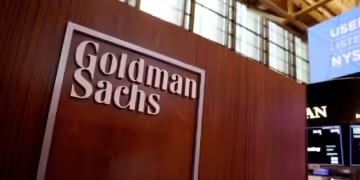Key Takeaways:
Powered by lumidawealth.com
- President Trump publicly criticized Walmart for announcing tariff-related price increases, urging the retailer to absorb the costs instead of passing them on to consumers.
- Walmart plans to raise prices this month and into the summer as tariff-affected goods hit store shelves, citing the impact of U.S.-China trade policies.
- Other companies, including Ford and Hermès, have also announced price hikes, with more expected to follow as tariffs continue to affect supply chains.
- Walmart CEO Doug McMillon previously warned Trump that tariffs would lead to higher prices for American shoppers, a prediction that has now materialized.
What Happened?
President Trump took to Truth Social on Saturday to criticize Walmart for its decision to raise prices due to tariffs on Chinese imports. Trump argued that Walmart, which reported significant profits last year, should “eat the tariffs” rather than pass the costs onto consumers.
Walmart, the largest U.S. retailer, announced during its latest earnings report that it would begin raising prices this month and early summer as tariff-affected merchandise reaches its shelves. The company cited the impact of tariffs as a key reason for the price hikes and chose not to provide a profit forecast for the current quarter.
Walmart CEO Doug McMillon, who met with Trump last month alongside other retail executives, had warned the president that tariffs would inevitably lead to higher prices for consumers. Despite this, Trump has maintained that companies should absorb the costs rather than burden shoppers.
Why It Matters?
Walmart’s price hikes highlight the tangible impact of U.S.-China tariffs on American consumers, particularly as other companies like Ford and Hermès follow suit. The criticism from Trump underscores the political sensitivity of rising consumer costs, especially as inflationary pressures remain a concern.
For Walmart, the decision to raise prices reflects the challenges of operating on thin retail margins while managing higher import costs. The company’s response to Trump’s criticism—emphasizing its commitment to keeping prices low—signals its awareness of the potential backlash from both customers and policymakers.
The broader implications extend to the retail and manufacturing sectors, as more companies may be forced to raise prices, further straining household budgets and potentially dampening consumer spending.
What’s Next?
Walmart and other retailers will likely face continued scrutiny from both the public and policymakers as tariff-related price increases take effect. The company’s ability to balance cost pressures with its low-price strategy will be critical in maintaining customer loyalty.
Meanwhile, the U.S.-China trade negotiations remain a key factor in determining the future trajectory of tariffs. A longer-term trade agreement could ease cost pressures, but until then, businesses and consumers will continue to feel the impact of the current trade policies.
Investors and analysts should monitor how these price increases affect Walmart’s sales performance and broader consumer sentiment in the coming months.

















